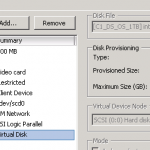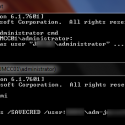- Echoing output to the command line
A script can print/write output to stdout using Write-Host “Hello World” but this command is aliased too, so that echo “Hello World” will also work (as will write “Hello World”). - Active Directory Cmdlets
Install some cmdlets to make life easier when accessing AD from powershell: http://www.nsoftware.com/powershell/download.aspx - Scheduled Tasks
Adding a powershell script as a scheduled task (cron job) can be done from Start > Control Panel > Scheduled Tasks and the format for the command should be like this:
C:\Windows\system32\windowspowershell\powershell.exe “& ‘c:\scripts\Get-ScriptName.ps1′”
The parameter is surrounded by double-quotes “
The path to the script is surrounded by single-quotes ‘ - Emailing a Format Table
Assigning a format table to a variable and then trying to email that variable does not work without doing the following:
$myVar = Get-Whatever | ft -auto | out-string
So that is what I have picked up and my first script to check disk usage on servers is here:
# Get-ExchangeDiskUsage.ps1
# Use Get-WMIObject to collect disk free info from a list of servers$arrServers = (
“server1.ac.uk”,
“server2.ac.uk”,
“server3.ac.uk”
)# If there is less than 5% free space an email alert will be sent
$intThresholdFreeSpace = 5.0$SmtpServer = “smtp.ac.uk”
$From = “Whoever <whoever@ac.uk>”
$To = “alertme1@ac.uk”
$Cc = “alertme2@ac.uk”function SendMailAlert {
$SmtpClient = New-Object Net.Mail.SmtpClient -arg “$SmtpServer”
$Message = New-Object Net.Mail.MailMessage($From,$To,”Exchange Alert: Low Disk Space”,$args[0])
$Message.cc.add($Cc)
$SmtpClient.send($Message)
#$SmtpClient.Send($From,$To,”Exchange Alert: Low Disk Space”,$args[0])
}$volumename = @{ l = “Label”; e = “volumename”; f = “{0:-20}” }
$size = @{ l = “Size (GB)”; e = { $_.size/1gb}; f = “{0:N}”}
$free = @{ l = “Free (GB)”; e = { $_.freespace/1gb}; f = “{0:N}”}
$perc = @{ l = “Free (%)”; e = { 100.0 * ([double]$_.freespace/[double]$_.size)}; f=”{0:f}” }
$name = @{ l = “Drive”; e = “name”; f = “{0,-20}” }$filter = “DriveType = ‘3’”
if ( $all ) { $filter = “” }foreach($computer in $arrServers){
$fields = $name,$volumename,$size,$free,$perc
$EmailBody = get-wmiobject -class win32_logicaldisk -filter $filter -comp $computer | where { (100.0 * ([double]$_.freespace/[double]$_.size)) -lt $intThresholdFreeSpace -and (100.0 * ([double]$_.freespace/[double]$_.size)) -gt -1.0 } | ft $fields -auto | out-string
if($EmailBody -ne “”){
$EmailBody = $computer + $EmailBody
SendMailAlert $EmailBody
}
}

